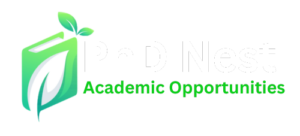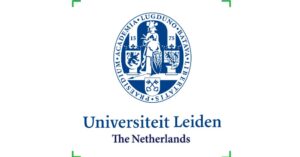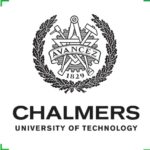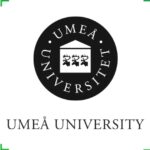Are you a PhD graduate eager to take the next leap in your academic journey? Look no further! Leiden University, Netherlands invites online applications for prestigious Postdoctoral Fellowships across a wide range of research fields. Don’t miss out on this opportunity to propel your career forward.
Candidates interested in Postdoctoral Fellowships can check the details and may apply as soon as possible.
(01) Postdoctoral Fellowship Position
Postdoc summary/title:–Post-doctoral researcher (1.0 FTE; 24 months)
The Postdoctoral Researcher will be responsible for the data collection, analysis, production, and dissemination of the scientific deliverables. The Researcher should have relevant expertise in EU policies and politics with a focus on the EU’s foreign policy. Familiarity with emotions in IR research agenda is considered to be a strong asset. Furthermore, candidates are expected to have vast experience with qualitative research methods, including elite interviews and content analysis.
Deadline : 7 October 2024
(02) Postdoctoral Fellowship Position
Postdoc summary/title:– Postdoctoral Researcher in the project “Contagious Digitalities: Information, Inoculation, Immunity”
The postdoctoral researcher will be working on a subproject within the starting grant project funded by the Dutch Government “Contagious Digitalities: Information, Inoculation, Immunity”, funded for 2025-2027 and directed by Dr. Ilios Willemars (Assistant Professor in Cultural Analysis and Media Studies at Leiden University). Other members of the project team are Dr. Janna Houwen (Assistant Professor in Film, Literary and Media Studies) and Dr. Nidesh Lawtoo (Professor in Literary Studies).
Deadline : 30 September 2024
View more Postdoc Positions Click Here
(03) Postdoctoral Fellowship Position
Postdoc summary/title:– Postdoctoral Researcher in the project “Do we owe anything to ourselves?”
The question whether we have obligations to ourselves is an old one. Indeed, doubt has long been raised about the possibility of duties to the self, that is, duties requiring such things as self-respect, self-improvement, self-care, standing up for oneself and self-cognition. A key objection is the paradox of self-release. Marcus Singer’s well-known spin on the paradox argues that the notion of a duty to oneself is internally incoherent: having such duties would amount to having duties from which one could always release oneself. Despite this objection, obligations to oneself have come back in fashion. Immanuel Kant was a proponent of duties to oneself and even criticized his predecessors for failing to fully acknowledge their significance. This project aims to examine whether we still owe something to ourselves by combining the insights of the ongoing debate on duties to oneself, Kant’s views on such duties, and the relevant conceptions in the literature on contemporary moral psychology.
Deadline : 22 September 2024
(04) Postdoctoral Fellowship Position
Postdoc summary/title:– Postdoctoral researcher in: Radicalisation measurement and prevention (1.0 FTE)
The current project is premised by a pervasive, methodological challenge in the study of radicalisation: the validity and reliability of efforts to measure radicalisation continue to be of poorer quality than those found in other research areas. Not only does this inhibit the development of explanatory theories of radicalisation, but it hinders efforts to counter or prevent the phenomenon more broadly. To address this problem, the current project brings together a team of researchers from psychology and political science to contribute to two, Campbell Collaboration systematic reviews and meta-analyses on the topics of radicalisation measurement and school-based radicalisation prevention.
The findings from these syntheses will be incorporated into a report for counter-terrorism policy-makers and practitioners on the topic of radicalisation prevention. In culmination, these work packages will allow the team to determine the extent to which schools-based interventions are effectively targeting radicalisation, and whether the measurement instruments are of sufficient quality for the task at hand. This knowledge will be particularly relevant for
practitioners tasked with piloting or measuring the effects of preventative interventions, as well as those entrusted to develop effective counter-terrorism policies
The Postdoctoral Researcher will be a key member of the team, contributing their expertise in radicalisation as well as scale development and validation to the psychometric systematic review followed by the intervention systematic review.
Deadline : 16 September 2024
(05) Postdoctoral Fellowship Position
Postdoc summary/title:– Postdoc on Causal Machine Learning for Spatio-temporal Datasets
The Leiden Institute of Advanced Computer Science (LIACS) is looking for an excellent Postdoc researcher (1.0 FTE) with a background in Computer Science (or a closely related field) to join a project focused on developing an advanced machine learning framework for spatio-temporal datasets. The position is for 4 years and is partially funded by the Dutch Research Council (NWO) through the Aspasia premium awarded to dr. Mitra Baratchi for her research on machine learning for spatio-temporal data. The successful applicant will be embedded in the Spatio-temporal data Analysis and Reasoning (STAR) and the Automated Design of Algorithms (ADA) research groups and collaborate with researchers at the Natural Computing (NACO) and the Explanatory Data Analysis (EDA) Research Groups. Moreover, there are plenty of opportunities for interaction and collaboration with other groups at the institute and internationally.
The research project is broadly focused on automated intervention design. An intervention is any external interference in an ongoing process that is performed to achieve a particular outcome. Being able to answer interventional questions automatically will help decision-makers solve complex challenges (i.e., reducing methane emissions or reducing the infection rate during a pandemic). Most machine learning algorithms designed for spatio-temporal data do not allow assessing the impact of interventions without capturing causal links. At the same time, configuring causal machine learning algorithms is extremely difficult, being an unsupervised learning task. In this project, we aim to design algorithmic solutions (e.g., new Automated Machine Learning approaches) for automatic and scalable assessment of interventions based on observational spatio-temporal datasets generated by modern sensing technologies (e.g., IoT sensors, mobile devices, Earth observations).
Deadline : 30 September 2024
(06) Postdoctoral Fellowship Position
Postdoc summary/title:– Postdoctoral researcher in supramolecular biomaterials (1.0 fte; 12 months)
The biochemical and biophysical cues of the stem cell environment that act in a concerted and spatiotemporal manner lead to the formation of the 200 cell types and organs of the human body; how this precisely occurs remains unclear, but it is necessary to guide their production for use in the biomedical area. Standard differentiation protocols in vitro mimic known stages in development by the timed addition of biochemical cues on 2D substrates, however these protocols lack the complexity of the 3D natural extracellular matrix (ECM), with its mechanical character that evolves in time. Supramolecular materials can recapitulate the structural and dynamic character of the ECM being based on non-covalent interactions, however their mechanically soft character remains challenging to mimic the properties of adult tissues. In this project, we will study supramolecular biomaterials whose properties can be mechanically modified in both space and time using external triggers.
Deadline : 30 September 2024
Connect with Us for Latest Job updates
About Leiden University, Netherlands : Official Website
Leiden University (abbreviated as LEI;Dutch: Universiteit Leiden) is a public research university in Leiden, Netherlands. It was founded as a Protestant university in 1575 by William, Prince of Orange, making it the oldest institution of higher education in the Netherlands.
Known for its historic foundations and emphasis on the social sciences, the university came into particular prominence during the Dutch Golden Age, when scholars from around Europe were attracted to the Dutch Republic due to its climate of intellectual tolerance. During this time, Leiden became the home to individuals such as René Descartes, Rembrandt, Christiaan Huygens, Hugo Grotius, Baruch Spinoza, and Baron d’Holbach.
The university has seven academic faculties and over fifty subject departments, housing more than forty national and international research institutes. Its historical primary campus consists of buildings in multiple places in the college town of Leiden, while a second campus located in The Hague houses a liberal arts college (Leiden University College The Hague) and several of its faculties. It is a member of the Coimbra Group, the Europaeum, and a founding member of the League of European Research Universities.
The university has produced twenty-six Spinoza Prize Laureates and sixteen Nobel Laureates. Members of the Dutch royal family such as Queen Juliana, Queen Beatrix, and King Willem-Alexander are alumni, and ten prime ministers of the Netherlands including incumbent Mark Rutte. US President John Quincy Adams also studied at the university.
Disclaimer: We try to ensure that the information we post on PhdNest.com is accurate. However, despite our best efforts, some of the content may contain errors. You can trust us, but please conduct your own checks too.
Related Posts
- 24 Postdoctoral Fellowship at University of Manchester, England
- 06 Postdoctoral Fellowship at European Molecular Biology Laboratory (EMBL), Germany
- 15 Postdoctoral Fellowship at University of Amsterdam, Netherlands
- 13 Postdoctoral Fellowship at University of Nottingham, England
- 24 Postdoctoral Fellowship at Technical University of Munich, Germany
- 05 Postdoctoral Fellowship at University of Queensland, Australia
- 24 Postdoctoral Fellowship at Oak Ridge National Laboratory, United States
- 04 Postdoctoral Fellowship at University of Toronto, Ontario, Canada
- 11 Postdoctoral Fellowship at ETH Zurich, Switzerland
- 11 Postdoctoral Fellowship at KTH Royal Institute of Technology, Stockholm, Sweden
- 24 Postdoctoral Fellowship at Chalmers University of Technology, Gothenburg, Sweden
- 04 Postdoctoral Fellowship at Umea University, Sweden













